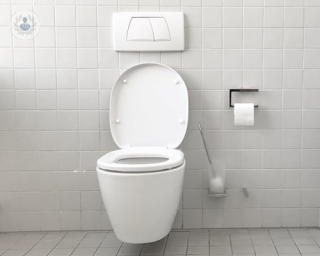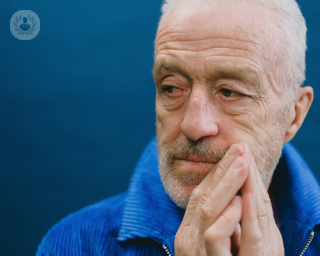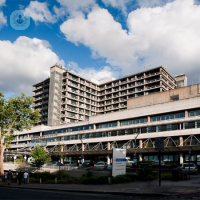Chronic diarrhoea
Dr Richard Sarsam - Gastroenterology
Created on: 11-13-2012
Updated on: 10-31-2023
Edited by: Conor Lynch
What is chronic diarrhoea?
The term chronic diarrhoea is used for cases in which diarrhoea has lasted for several weeks and is quite often linked to other health issues such as weight loss, abdominal pain, vomiting, nausea, high temperature or fever, or being unable to absorb nutrients.

Diarrhoea is the frequent passage of soft and watery stools. It is thought to be frequent if a person has bowel movements more than three times a day.
Diarrhoea can be a relatively common issue that normally lasts a few days before going away on its own. When it lasts longer, it may be due to a more serious issue. In cases of chronic diarrhoea, symptoms can come and go.
What is the general outlook like for patients with chronic diarrhoea?
Diarrhoea continues to be one of the main causes of morbidity and mortality in underdeveloped countries, affecting up to five per cent of the world’s population. Risk factors include malnutrition and a lack of breast milk, among many others.
It is worth noting that the prevalence of chronic diarrhoea is much lower in the western world, and deaths that arise from it tend to be isolated cases derived from untreatable congenital diarrhoea.
What are the symptoms?
The main symptom of chronic diarrhoea is an increase in needing the toilet, and a gradual decrease in stool consistency. Other symptoms include:
- Abdominal pain, commonly known as cramps.
- Nausea or vomiting.
- High temperature or fever.
- In cases of abundant diarrhoea, the person may become dehydrated due to the loss of fluids.
- Dehydration can be recognised by the following symptoms: extreme tiredness, thirst, dry tongue, muscle cramps, dizziness, and unconcentrated urine among others.
What are the tests used for it?
The patient's medical history is important for the initial diagnosis and choice of tests. These tests are typically as follows:
Anamnesis: a medical history of foods that have previously lead to diarrhoea. The faeces are analysed which can quite often indicate a cause.
Physical examination: signs of malabsorption and malnutrition are looked for: weight, size, body mass index, muscle mass, and many more. It is useful to note the changes from the onset of diarrhoea. During the examination, things such as hydration levels and changes in skin tone will be taken into account.
Additional tests: these tests vary depending on the patients’ age and diagnosis. The more basic tests will be done first to diagnose more frequent causes.
What are the main causes of diarrhoea?
There are many things that could cause diarrhoea, the most common are:
- Bacterial contamination of food or water.
- Viral cause: flu, norovirus, or rotavirus. Rotavirus is the most common cause for diarrhoea in children.
- Parasites in food or water.
- Some medications such as; antibiotics, antacids with magnesium, or cancer treatments.
- Some foods or ingredients can cause an intolerance and/or sensitivity such as lactose.
- Some stomach, small intestine, or colon diseases can cause diarrhoea.
- Some colon function issues.
How can it be prevented?
To avoid viral diarrhoea, it is important to maintain good hygiene such as washing your hands with soap and water before and after meals. To avoid bacterial or parasitic diarrhoea, it is important to have good food hygiene and to drink clean or bottled water. It is also important to have good hand hygiene as with viral diarrhoea.
In cases of diarrhoea after eating, it can sometimes be due an intolerance, which is quite difficult to prevent when unknown. Another type is travellers’ diarrhoea, and the recommendation for avoiding this is to avoid undercooked or raw food as well as cold drinks with ice. It is advisable not to drink tap water and to eat foods which have been thoroughly cooked.
How is diarrhoea treated?
Treatment will depend on the cause and the severity. One of the most important things to do is to compensate for the loss of liquids and minerals. The easiest way to do this is is to increase the amount of liquid ingested with mineral water, herbal teas, or drinks that have sodium, chloride, or potassium.
If the diarrhoea is intense, increasing the water ingested should help alleviate the problem. If it’s not possible to keep liquids down for very long, it’s recommended that you go to the doctor to get electrolytes and water replenished intravenously.
What specialist should I see?
As it is a relatively common symptom, there are many specialists who could treat and solve chronic diarrhoea problems. Specialists include; gastroenterologists, internal medicine, and family medicine specialists, occasionally surgeons can help treat diarrhoea or chronic diarrhoea.














